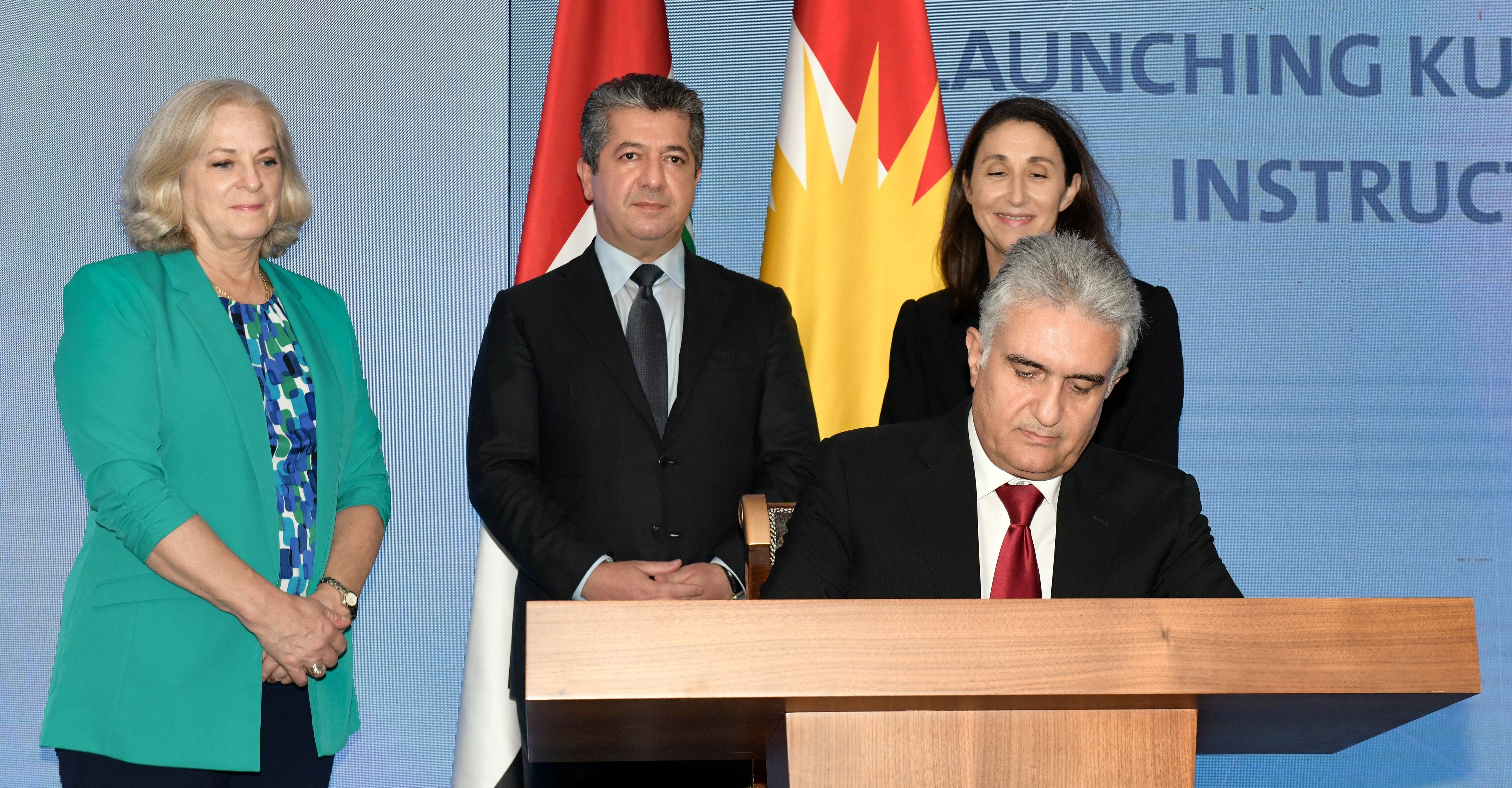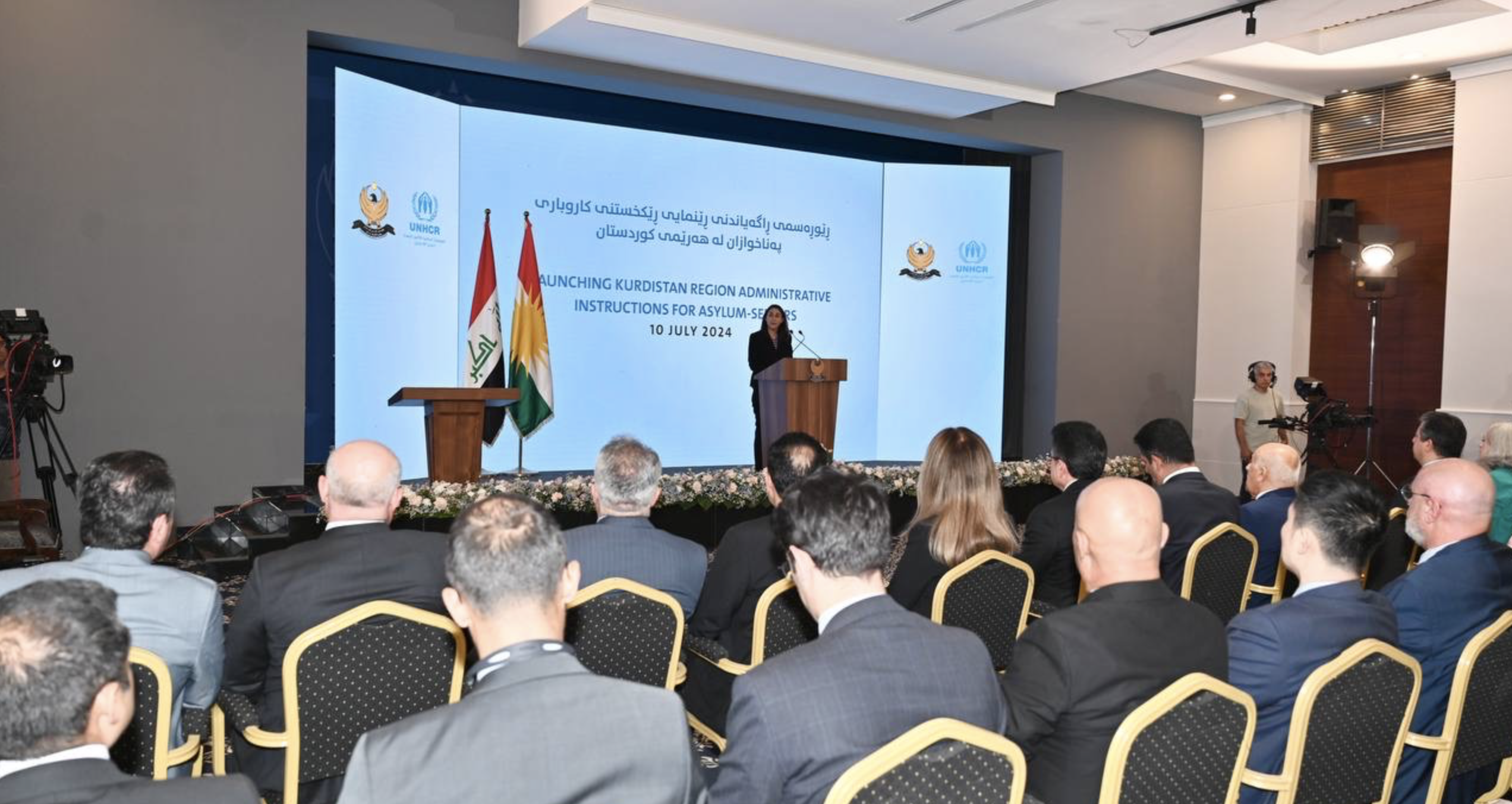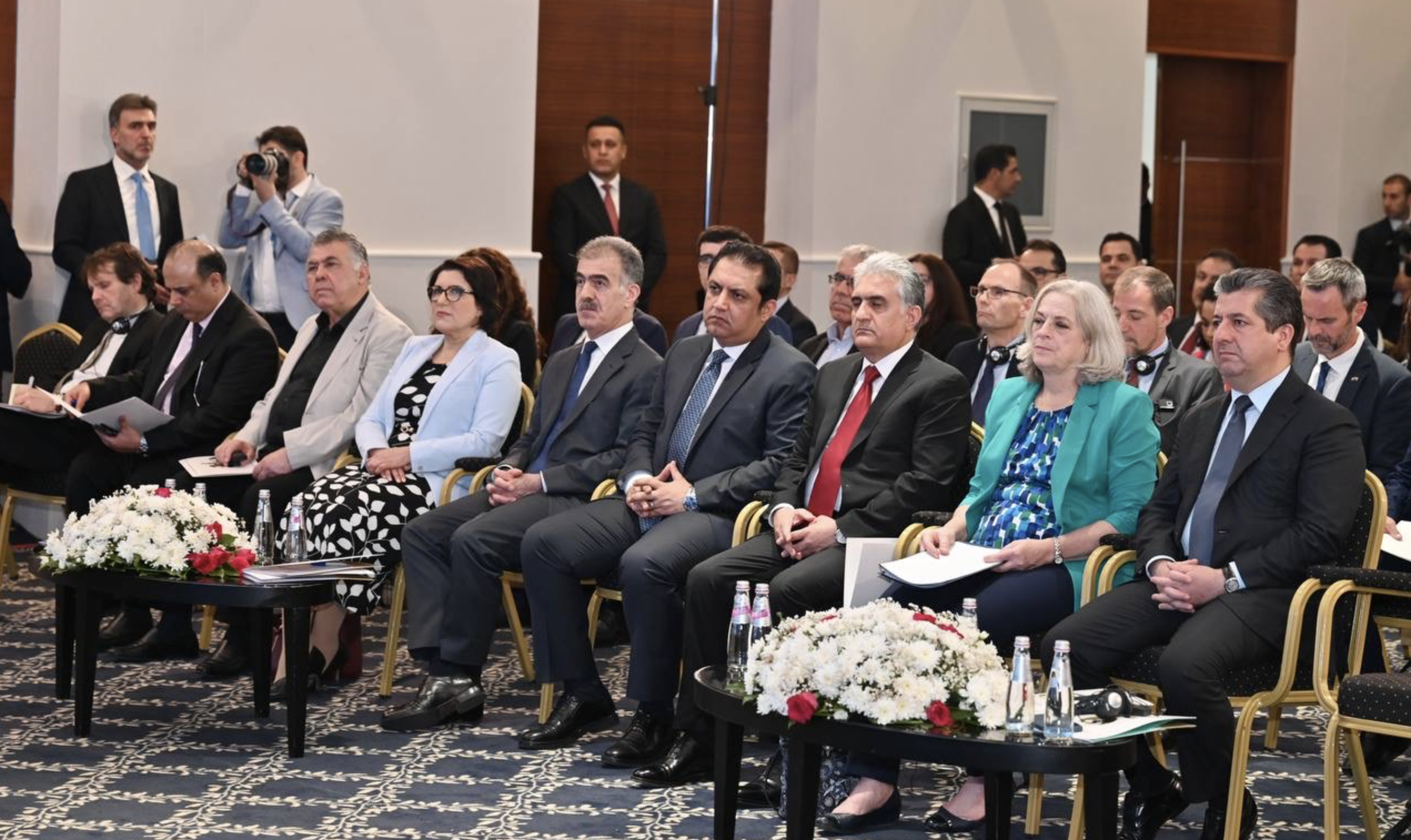On July 10, 2024, Kurdistan Regional Government (KRG) Prime Minister Masrour attended a significant ceremony announcing new guidelines for organizing refugee affairs in the Kurdistan Region. This event marked a pivotal step in the KRG’s ongoing commitment to humanitarian aid and refugee protection and was attended by U.S. Ambassador to Iraq Alina Romanowski and UN High Commissioner for Refugees (UNHCR) Acting Representative in Iraq Pauline Fresneau.
The ceremony featured a speech by Ambassador Romanowski, which was followed by the formal signing of the guidelines by KRG Minister of Interior Rebar Ahmed Khalid. This signing ceremony underscored the collaborative efforts between the KRG, United States, and UNHCR to address the needs and rights of refugees and asylum seekers in the region.

Prime Minister Barzani delivered a poignant address, highlighting the Kurdistan Region’s long-standing tradition of providing refuge. His remarks were as follows:
“For many years, the Kurdistan Region has hosted hundreds of thousands of asylum seekers, refugees from neighboring countries, and internally displaced persons (IDPs) from within Iraq, without any religious, racial, or ethnic prejudice. During the onslaught by ISIS, thousands sought safety in the Kurdistan Region. Despite the region’s financial crisis, the KRG took on the task of hosting numerous IDPs in refugee camps, fulfilling its responsibilities despite shouldering the majority of the burden.
“Today, the Kurdistan Region continues to protect and provide shelter for thousands of refugees, asylum seekers, and IDPs who fled their homes due to insecurity and conflict. Unfortunately, conditions in their home regions have not yet normalized to enable their return. The KRG supports the voluntary return of all refugees and asylum seekers through the normalization of the situations in their homes, allowing them a dignified return.

“In a bid to organize asylum affairs, the Ministry of Interior, in collaboration with the UNHCR, has been preparing and drafting administrative guidelines about the asylum-seeking process in the Kurdistan Region.
“These guidelines are integral to the KRG’s administrative and legal initiative aimed at safeguarding the rights of asylum seekers and refugees, as well as defining their obligations. They focus on coordinating and organizing arrival and reception procedures for asylum seekers, and on establishing their rights and obligations in the region.
“I commend the Ministry of Interior, the team that drafted the guidelines, and UNHCR for their collaborative work.
“We reiterate that the Kurdistan Region will continue to remain a shining example of hospitality and a safe haven for all those who seek refuge from persecution, oppression, terrorism, and intimidation.

“Although we face a tough financial situation, we remain committed to providing public services such as education, healthcare, security, and essential needs to IDPs, refugees, and asylum seekers. We hope that the federal government and the international community will also assist the Kurdistan Region in maintaining these services for the refugees and asylum seekers until conditions in their home countries allow them a dignified return.”
The Kurdistan Region, despite financial challenges, has a history of significant humanitarian contributions. During the fight gainst ISIS, the region hosted nearly two million IDPs and refugees. According to recent data, the Kurdistan Region now shelters over 900,000 IDPs and refugees, both in camps and within local communities. This continued effort underscores the KRG’s unwavering dedication to providing a safe haven and upholding the rights and dignity of those displaced by conflict and persecution.